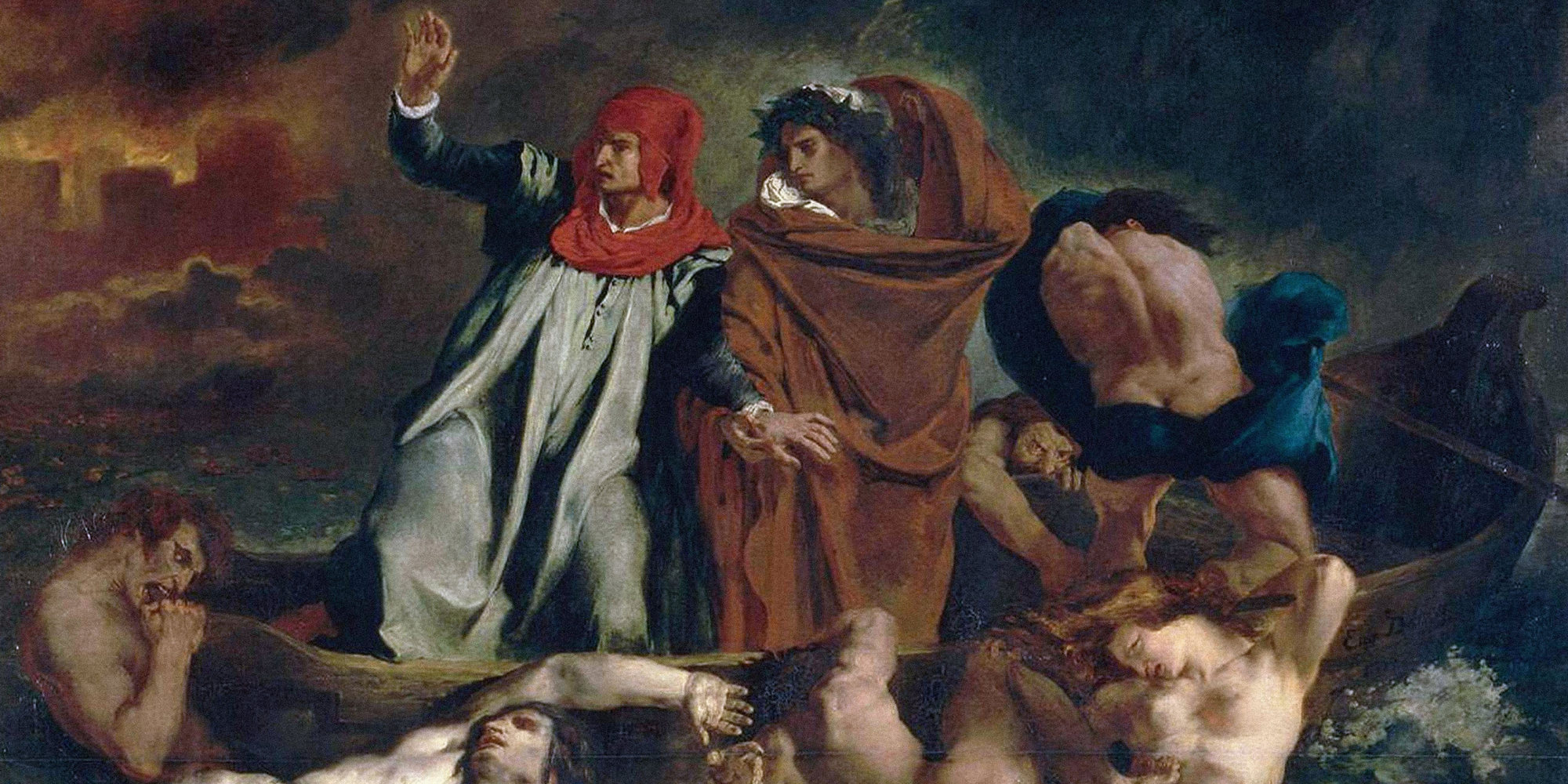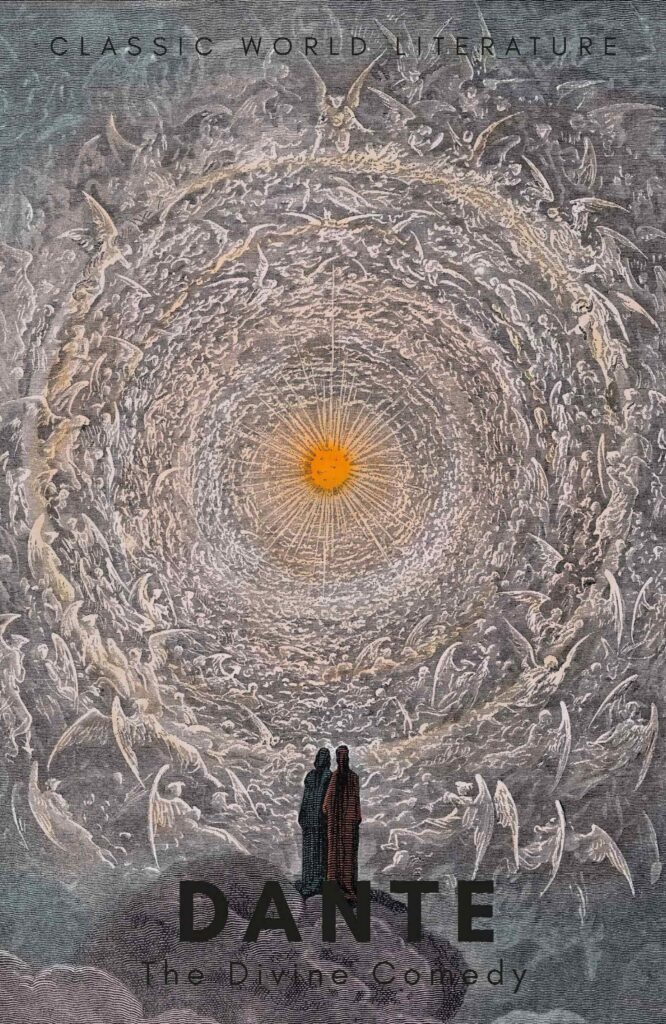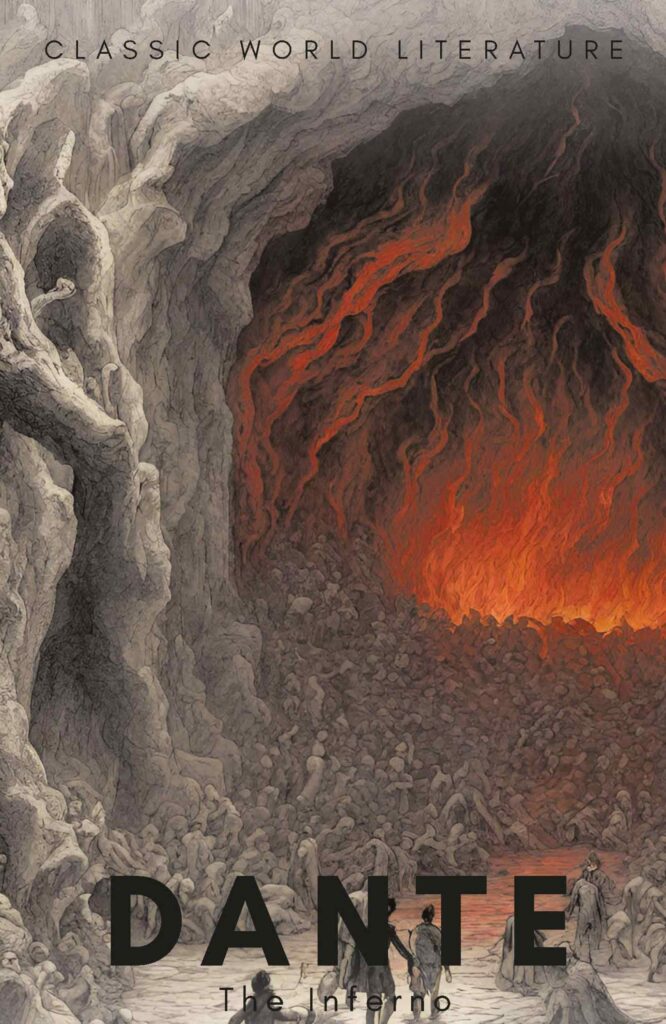
Dante 2021 and the hills we climb
Stefania Ciocia basks in the light of two radiant literary visions
After the initial shock at the new restrictions, the panic-buying and the logistical challenges of working from home, there was a point during the first lockdown in March 2020 when the creeping realization that we would be in this for the long haul sparked a resurgence in interest in books about real and fictional epidemics. Sales of Albert Camus’s 1947 novel The Plague boomed, and Giovanni Boccaccio’s Decameron expanded its reach beyond the Italian school-system, and world-literature syllabi. It’s not often that a late-medieval masterpiece starts trending as a go-to topical read, but Boccaccio’s collection of a hundred tales told by ten young people who are self-isolating at the outskirts of Florence in 1348, while the Black Death is ravaging the city, seems ready-made, structurally and thematically, for virtual literary get-togethers. It is also exactly the kind of big, bold reading ‘project’ for the endless, groundhog days of these pandemic times.[1] (My own big reads of 2020 have been Leo Tolstoy’s Anna Karenina, and Lucy Ellmann’s Ducks, Newburyport, and they’ve both bountifully spilled over into 2021.)
If 2020 has been good to Boccaccio, 2021 promises to thrust into the limelight his precursor and unsurpassed master of Italian literature: Dante Alighieri.[2] On the 700th anniversary of his death, Dante (the surname is surplus to requirement) remains a towering figure in the western canon, comparable to Shakespeare in the way he has left his mark on his native language, and in the cross-cultural influence of his powerful imagination. The epic vision of Hell, Purgatory and Paradise in the The Divine Comedy is at the root of a conception of the three realms of the afterlife as physical spaces, mapped out according to rational and just principles; we resort to this idea in the common expression – usually uttered from a sense of having been sinned against – that “there is a special place in Hell” reserved for every particular kind of sinner.
The rhetorical power of this turn of phrase has a bipartisan appeal, as evidenced in the invocations of a special place in Hell for “women who don’t help each other”, for “any foreign leader that engages in bad-faith diplomacy with President Donald J. Trump”, and for “those who promoted Brexit without even a sketch of a plan for how to carry it [out] safely”. We owe these additions to Dante’s infernal topography to former U.S. Secretary of State Madeleine Albright (speaking of Hillary Clinton’s 2016 presidential candidacy), Republican economist Peter Navarro and former European council president Donald Tusk, respectively. Their soundbites are a catchy opener for BBC Europe editor Katya Adler’s ‘Dante 2021’, a three-part exploration of how The Divine Comedy speaks to our present moment from across the centuries.
The first weekly episode was broadcast on Radio 4 on 11 January, and the whole programme is now available on BBC Sounds. A self-confessed Italophile (extra brownie points), Adler goes to town in arguing for Dante’s relevance. His anguished journey into the depths of Hell, followed by the difficult yet hopeful ascent through Purgatory into Paradise chimes with the experience of loss and the apocalyptic mood of the past year, which has forced us into a collective reconsideration of our values and priorities, as well as private soul-searching for reservoirs of resilience and faith in the future.
The broader parallels between then and now are not always on target, though. Adler is good at emphasizing Dante’s keen sense of social justice, his unrestrained contempt for the fat cats of his time, and his suspicion at the morality of a banking system that makes money out of money. The analogies wear thin when we are invited to think of the snaking of Minos’s tail as a demonic algorithm, programmed to match every damned soul to the appropriate circle of Hell.[3] “I know this is silly”, Adler admits. With that remark she almost gets me on side, even as I don’t quite follow where she goes next, with the idea of The Divine Comedy as an early example of virtual reality. Isn’t that true of any act of imagination? Isn’t the very act of opening the pages of a work of fiction a stepping into a virtual reality? Perhaps I’m being harsh.
The thing is, by the time the first episode concludes with Dante and the world of gaming, I’m already lost in a dark wood of outrage. For me, Adler oversteps the mark – the irony! – in her reading of Ulysses as a populist demagogue. In one of the most famous passages of Inferno, as I have written in greater detail here, Ulysses reminisces about the “folle volo” (“mad flight”) he took with his comrades, when he convinced them to sail with him past the pillars of Hercules, the limits of the known world and, as it turns out, literally the end of the earth. To reduce Ulysses’s impassioned, rousing appeal to one of the noblest human instincts – our thirst for knowledge and discovery – into the manipulative, self-interested rhetoric of petty politicians really is a sin deserving of its special place in Hell.
And yet, there is much to like about ‘Dante 2021’, especially when it stops trying so bloody hard. A few final points on this score: the tripartite division is a no-brainer, as is Adler’s canny choice of guides for each realm of the underworld, in an echo of the Comedy where Dante has Virgil and Beatrice to rely on during his journey. (And, anyway, who am I to pass judgement on lame nods to the poem when I’ve put two in the previous paragraph?) But the numerological framework – the programme aims to offer twenty-one reasons to read Dante in the twenty-first year of the twenty-first century – lands a bit flat.
I’m sure Dante would have appreciated the homage. His poem plays on the pregnant significance of numbers, beginning from its very structure. Each of the three canticles contains thirty-three cantos (an additional one in Inferno serves as an introduction to the whole work and brings up the total to a round one-hundred) written in terza rima (the rhyme scheme is aba, bcb, cdc, etc.), for three is a symbol of perfection and of the Christian divinity. Adler’s enthusiastic reprisal of numerology gets top marks for effort, but is too flimsy even to be rescued by her knowingness. It diminishes the enterprise, boiling it down to a list rather than adding an extra dimension to it, because it’s too close to the lazy journalism of “Top ten…” articles that have become ubiquitous fodder against the demands of 24/7 content production.
Leaving the framework aside, things pick up in the discussions about Purgatorio and Paradiso, which I found more insightful, and a reason for persevering with this series. The second episode made me see Purgatorio in a new light, as the most interesting of the canticles, rather than the neither-fish-nor-fowl intermediary realm, a place we must slog through on the way to our heavenly destination. Adler’s guide here, Professor Matthew Treherne from the Centre for Dante Studies at the University of Leeds, talks about the connection between dubious financial practices in the present day and in Dante’s time, when the banking industry was in its infancy. But what got me thinking was another comment of his, said half in jest, about the truism that Inferno has the most compelling characters. As Treherne points out, you wouldn’t want to be stuck with them for eternity: after ten minutes in their company, you’d find that they are bores, self-obsessed, mono-maniacal.
I see what he’s getting at. Dante’s damned are memorable because the enormity of their sins is the large canvas they are painted on – the colours bold and vivid, but from a limited palette. They are not interested in interacting with one another, unless the connection is part of their punishment, as in the case of Count Ugolino della Gherardesca. Guilty of treason, he is locked up to his neck in ice – a symbol of the hard-heartedness inherent in this crime – and gnaws for eternity on the skull of archbishop Ruggiero, the man who betrayed him in turn. Ugolino’s perpetual act of revenge on his enemy is contrappasso (retribution) for the terrible fate to which he was condemned by Ruggiero: imprisoned in the torre Muda, Ugolino starved to death, having witnessed his children perish one by one to the same fate.
The story of Ugolino and his young sons folds horror upon horror; when, in despair at the slow inevitability of their demise, the count bites on his hands, his children mistake the gesture as a sign of hunger and offer themselves to him: “…Father, we should grieve / Far less, if thou wouldst eat of us: thou gav’st / These weeds of miserable flesh we wear, / And do thou strip them off from us again.” (Inf. XXXIII, 58-61). Days later, Ugolino – rendered blind by starvation – gropes for his dead children: “Then fasting / Got the mastery of grief” (73-4), he tells Dante, concluding his account. These parting words contain a chilling ambiguity. Ostensibly they refer to the manner of his death, but they also hint at an unspeakable act of cannibalism which might have preceded it. And, just like this, Ugolino returns to his “fiero pasto” (“fell repast”).
Treherne is right: Hell is rife with solipsism. The spotlight on the damned is for our benefit, not theirs. In this sense, their exchanges with Dante are never genuine, because they lack the foundation for reciprocity. With the exception of Dante himself, nobody’s getting anywhere. And yet. And yet, the poet is repeatedly moved to pity in his encounters with the damned. If they have lost the capacity to connect, Dante – and, by extension, us readers – haven’t. In fact, this is the greatest triumph of Inferno: that it invites us to see the spark of humanity in the monstrous. But I’ll have to save fuller treatment of this point for another time.
Professor Treherne’s observation that Purgatorio is about change stands. There is no movement, no character development, in the other two realms. And, having left behind the ineffability of sin in the likes of Ugolino, once we get to Paradiso we must face the ineffability of grace. This poses something of a narrative problem, arguably more acute in the last canticle than in the first. Adler tackles it head on when she greets her third guide, Dr Vittorio Montemaggi, with the provocation that Paradiso is a hard sell, because the devil has the best tunes. Montemaggi’s interpretative key to Paradiso is an invitation to latch on to its definition of love as the first principle, the energy “that moves the sun in heav’n and all the stars”, in the poem’s famous closing line.
The focus on love as connection, as our essential need for connection – so evident at this time when we cannot physically be with one another – makes Paradiso accessible, even without an in-depth understanding of medieval theology and of Dante’s religious beliefs (and prejudices, which are rightly taken to task in the third episode of the programme). The corollary to the compelling power of “l’amor che move il sole e l’altre stelle” is that if Inferno shows us the humanity in the monstrous, Paradiso unveils the divinity in the human. This is why it’s worth embarking on this journey. But there’s worth and there’s worthy. Dante’s idea that in seeing God, we become God is ribbed as a “such a wonderful thing, so simple to understand, so simple!” in an exuberant, affectionate exegesis by Roberto Benigni, the Oscar-winning Italian actor and director of Life is Beautiful. It is a hard sell.
Or is it? As I was pondering this, I thought of a similar call, a call we’ve heard much more recently, from a young poet, on one of those very few public occasions when we still turn to poets to tell us where we are, remind us how we got here, and show us the way forward. In revisiting Dante, in the twenty-first year of the twenty-first century, my mind goes to Amanda Gorman’s impeccable rendition of ‘The Hill We Climb’, her powerful poem for the inauguration of President Biden, a work that manages to be life-affirming without embroidering reality.
Gorman too charts a difficult ascent, the continuation of an arduous journey during which we’ve already stumbled and fallen, and are bound to do so again. We’re in a different context from Dante, of course. The hill we climb with Gorman is less a vision of Purgatory (though it is that too), and more obviously a reference to John Winthrop’s ideal of America as the “City upon a Hill”, a beacon of hope and a moral example for the rest of the world. The shared metaphor of the ascent is inevitable, built into our way of conceptualizing what is good, whether we hail from a Christian background or not.
But Gorman’s call to action so that “Love becomes our legacy” takes me back to Dante with greater firmness, as does her insistence on our agency.[4] Both writers return to these concepts at the end of their poems. As he basks in the light of God, and in a blissful sense of unity and harmony, Dante experiences a revelation that leaves him speechless: “Here vigour fail’d the tow’ring fantasy: / But yet the will roll’d onward, like a wheel / In even motion, by the Love impell’d, / That moves the sun in heav’n and all the stars” (Par. XXXIII, 132-35). Gorman too concludes on a luminous vision where we become that which inspires out of the dark: “The new dawn blooms as we free it. / For there is always light, / if only we’re brave enough to see it. / If only we’re brave enough to be it.”
Dr Stefania Ciocia is a Reader in Modern and Contemporary Literature at Canterbury Christ Church University. You can find her on Twitter as Gained in Translation @StefaniaCiocia.
Image: Eugene Delacroix The Barque of Dante (Dante and Virgil in the Underworld) Credit: Artepics / Alamy Stock Photo
[1] Also inspired by Boccaccio is the Decameron Project: 29 Stories from the Pandemic, commissioned by The New York Times Magazine. This all-fiction issue – featuring, amongst others, Margaret Atwood, Edwidge Danticat, Téa Obreht, Kamila Shamsie, and Colm Tóibín – was published on 10 November 2020, with the strap-line “When reality is surreal, only fiction can make sense of it”. For pandemic-free book recommendations, see Sally Minogue’s blog on lockdown reads.
[2] Boccaccio (1313 – 1375) admired Dante (1265 – 1321) hugely, and wrote the first commentary to the Comedy. In fact, he is credited with giving it the qualifier Divine. For a taster of what the Italian literary critic Francesco De Sanctis called Boccaccio’s “hearthly comedy”, see my own piece on the Decameron.
[3] The eternal punishment of each sinner is determined by the number of times king Minos coils his tail around his body.
[4] Dante celebrates it openly in Paradiso: “Supreme of gifts, which God creating gave / Of his free bounty, sign most evident / Of goodness, and in his account most priz’d, / Was liberty of will, the boon wherewith / All intellectual creatures, and them sole / He hath endowed” (Par. V, 18 -23).
Books associated with this article

The Divine Comedy
Dante Alighieri
